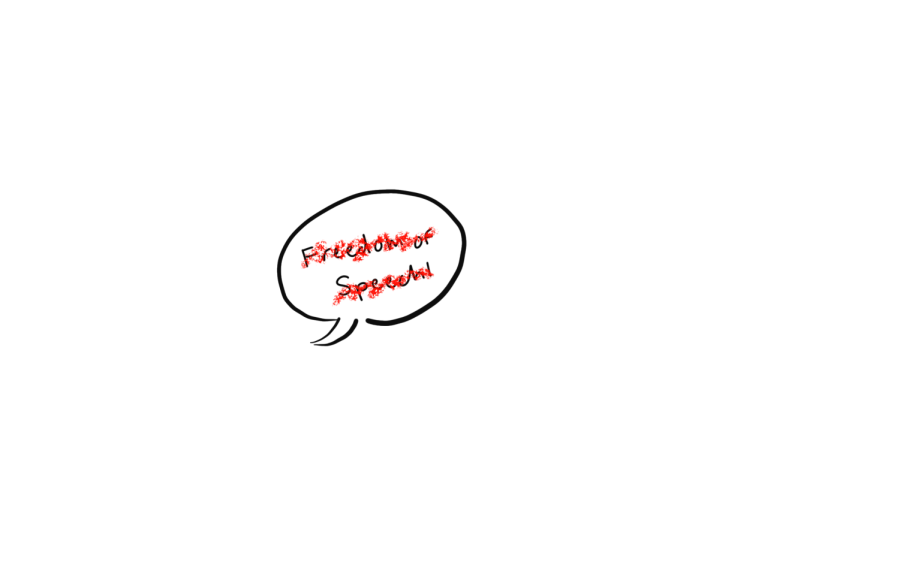Censorship.
We live in a world of information. Not necessarily knowledge, but definitely information. Anyone from anywhere can contribute, speak up, chime in, disseminate, inform and misinform. Whether rich or poor, majority or minority, advantaged or disadvantaged, the platforms are all the same. In this fleeting and cosmic blip that is life, we are fully connected, fully able to share – for the first time in human existence. This has prompted an overwhelming influx of opinions, for in the online world the social norm of shutting up and not attacking people with your minimally-efforted thoughts on a subject you’re barely qualified to speak on has yet to manifest itself. This may come off as cynical, and it probably is to an extent. To be fair, there are undeniable benefits to this radical change in communication: the uneducated can become educated, the minority can be heard, the politician can be critiqued, the hipster can be bashed, the racists can be caught, and I can write this opinion piece.
But what about the opinions that aren’t needed, nor helpful? The ones that are intrusive, misinformed, and potentially damaging to the working frameworks of the youth, whose perception of the world is still in the midst of being constructed through the opinions they receive from family, friends, community, and now the internet? Should they be targeted? Should they be shut down? Should they, in other words, be censored?
This is a difficult and enigmatic issue to tackle. Removing the nuance, political and social complexities, and speaking in simple terms, censorship should not be a justifiable inhibitor of one’s opinion, especially for opinions that positively tackle and address prominent issues within a global society. In American terms, there should be freedom of speech. However, this is the same argument used by political extremists and twitter trolls, who maintain that their conspiracy theories and divisive rants are legitimate within the realm of free speech. So where does that leave us?
Speaking from personal opinion, I think censorship is unproductive and unconstructive, regardless of the opinion being censored. This censoring is especially harmful when it is selective censoring, and even more damaging when censoring youth expression. Yes, the adolescent mind is fickle and evolving, its outlook fluid and changing as it navigates the journey of growing up and entering the adult world of public discourse. But despite this capricious, skittish nature of the youth psyche, it is incredibly important that the younger generation gets the opportunity to vocalize their thoughts, irrespective of whether or not they agree with their own sentiments later on. Youth censorship isn’t just an issue of making the young feel unheard, but also an issue of killing critical thinking.
It is safe to say we are becoming increasingly black and white, choosing to be extreme, definite and stubborn in our arguments, failing to realize the polarization we are causing. It is much easier to shut someone down than it is to engage in meaningful, nuanced discourse, and even those who try to engage in open debate are still affected by the toxicity permeating from the liberal culture of canceling and the conservative ideology of censoring.
To be blunt, we are becoming stupider in the way we handle difficult conversations, and this is incredibly detrimental to the youth as they venture into a world with an increasing lack of critical thinking. Conversations need to be had, opinions shared, regardless of the subject matter or potential controversy. Rather than shutting down ideas, we should be addressing them with subtlety and logic, reasoning and planning, sincerity and openness.
As an editor for a student-led publication, this issue is even more pressing and relevant to my journey as both a youth and a writer. I am not situating myself on the extreme, opposing end of the spectrum, saying any and all opinions should be published without consultation or fact-checking, for that would be hypocritical. I am simply saying: please don’t kill critical thinking, nor inhibit the many voices of a globalized generation struggling to combat what seems to be a countless list of problems imposed and left behind by those who are censoring.



